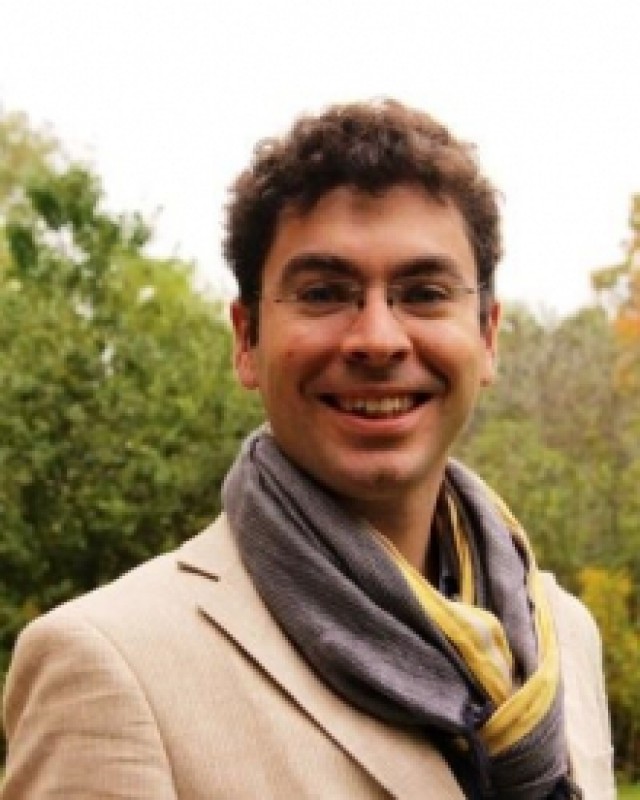KLI Colloquia are invited research talks of about an hour followed by 30 min discussion. The talks are held in English, open to the public, and offered in hybrid format.
Fall-Winter 2025-2026 KLI Colloquium Series
Join Zoom Meeting
https://us02web.zoom.us/j/5881861923?omn=85945744831
Meeting ID: 588 186 1923
25 Sept 2025 (Thurs) 3-4:30 PM CET
A Dynamic Canvas Model of Butterfly and Moth Color Patterns
Richard Gawne (Nevada State Museum)
14 Oct 2025 (Tues) 3-4:30 PM CET
Vienna, the Laboratory of Modernity
Richard Cockett (The Economist)
23 Oct 2025 (Thurs) 3-4:30 PM CET
How Darwinian is Darwinian Enough? The Case of Evolution and the Origins of Life
Ludo Schoenmakers (KLI)
6 Nov (Thurs) 3-4:30 PM CET
Common Knowledge Considered as Cause and Effect of Behavioral Modernity
Ronald Planer (University of Wollongong)
20 Nov (Thurs) 3-4:30 PM CET
Rates of Evolution, Time Scaling, and the Decoupling of Micro- and Macroevolution
Thomas Hansen (University of Oslo)
RESCHEDULED: 18 Dec (Thurs) 3-4:30 PM CET
Chance, Necessity, and the Evolution of Evolvability
Cristina Villegas (KLI)
8 Jan 2026 (Thurs) 3-4:30 PM CET
Embodied Rationality: Normative and Evolutionary Foundations
Enrico Petracca (KLI)
15 Jan 2026 (Thurs) 3-4:30 PM CET
On Experimental Models of Developmental Plasticity and Evolutionary Novelty
Patricia Beldade (Lisbon University)
29 Jan 2026 (Thurs) 3-4:30 PM CET
Jan Baedke (Ruhr University Bochum)
Event Details

Topic description:
Why do cultures change? In the present talk I will present new research exploring cultural change in eight cultural-level markers, or correlates, of individualism in the United States, all of which increased over the course of the 20th century: frequency of individualist themes in books, preference for uniqueness in baby naming, frequency of single-child relative to multichild families, frequency of single-generation relative to multigeneration households, percentage of adults and percentage of older adults living alone, small family size, and divorce rates (relative to marriage rates). I will further show results from tests of six key hypotheses regarding cultural change in individualism-collectivism. As predicted by previous theories, changes in socioeconomic structure, pathogen prevalence, and secularism accompanied changes in individualism averaged across all measures. The relationship with changes in individualism was less robust for urbanization. Contrary to previous theories, changes in individualism were positively (as opposed to negatively) related to the frequency of disasters and not at all related to shifts in climatic demands. Time-lagged analyses suggested that only socioeconomic structure had a robust effect on individualism; changes in socioeconomic structure preceded changes in individualism. I will discuss implications of this work for anthropology, biology, psychology, and sociology.
Biographical note:
Igor Grossmann is a world traveller: Born in the Soviet Union, he lived in Ukraine, Germany, and the U.S. Currently, he is an Assistant Professor of Psychology and the director of the “Wisdom and Culture” laboratory at the University of Waterloo, Canada. Prof. Grossmann has published widely, including such journals as the Proceedings of the National Academy of Sciences of the U.S.A., Psychological Science, or Journal of Experimental Psychology, and it has been recognized through numerous awards, including two RISE Awards from the Association for Psychological Science, a Dissertation Award from the American Psychological Association (Division 20), The Otto Klineberg Intercultural and International Relations Award from The Society for the Psychological Study of Social Issues, and the President’s New Investigator Award from the Canadian Psychological Association.


